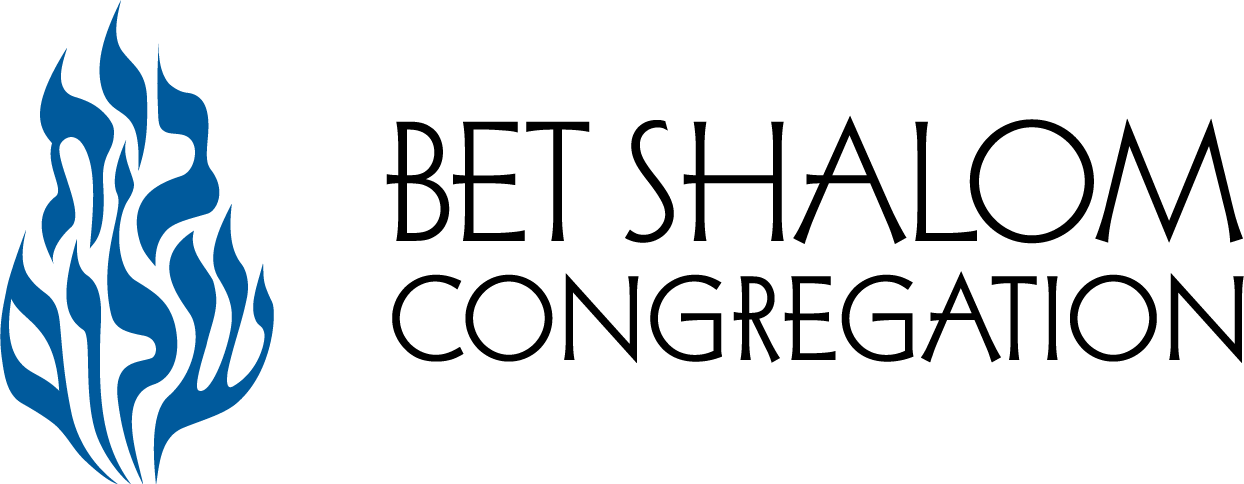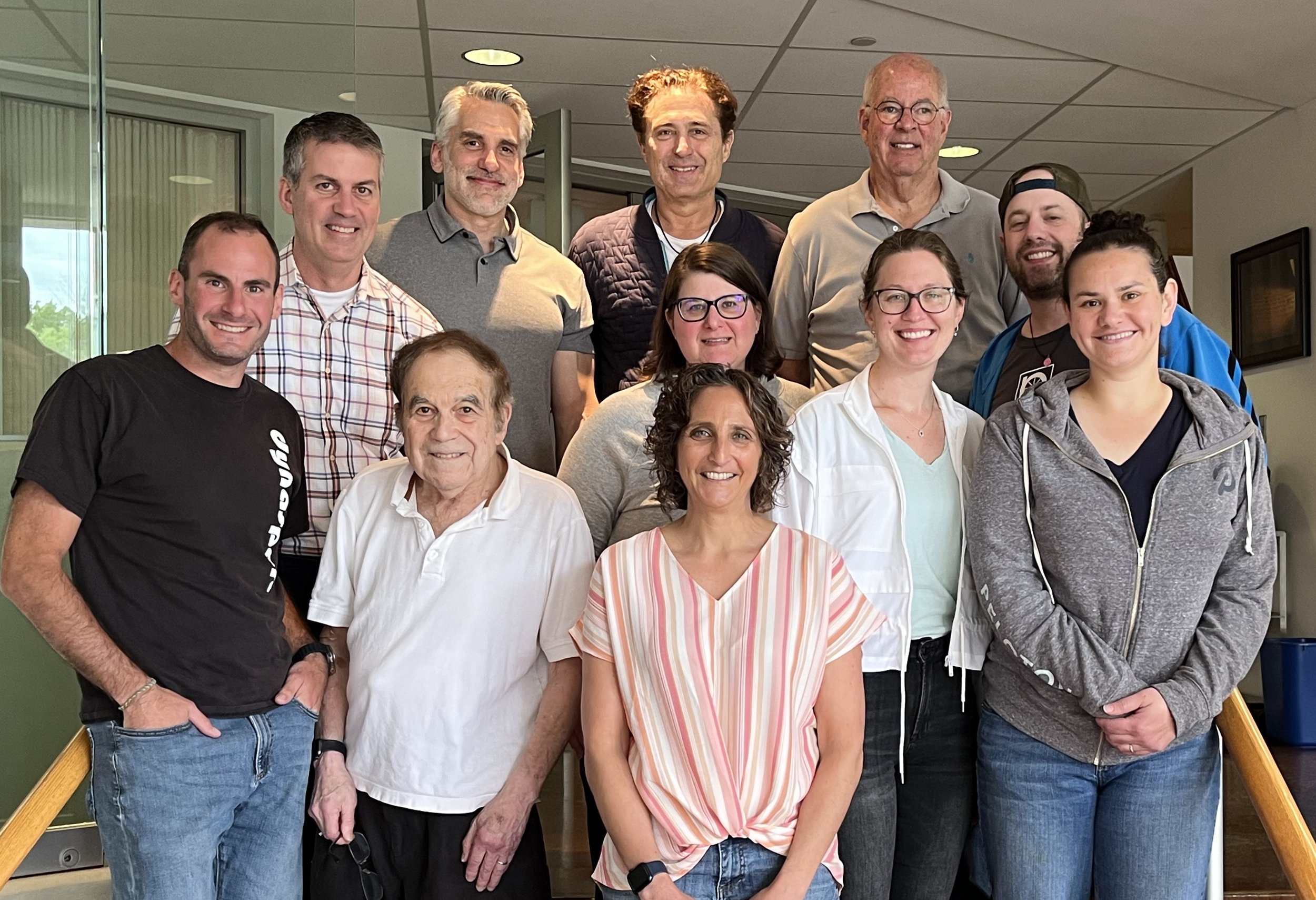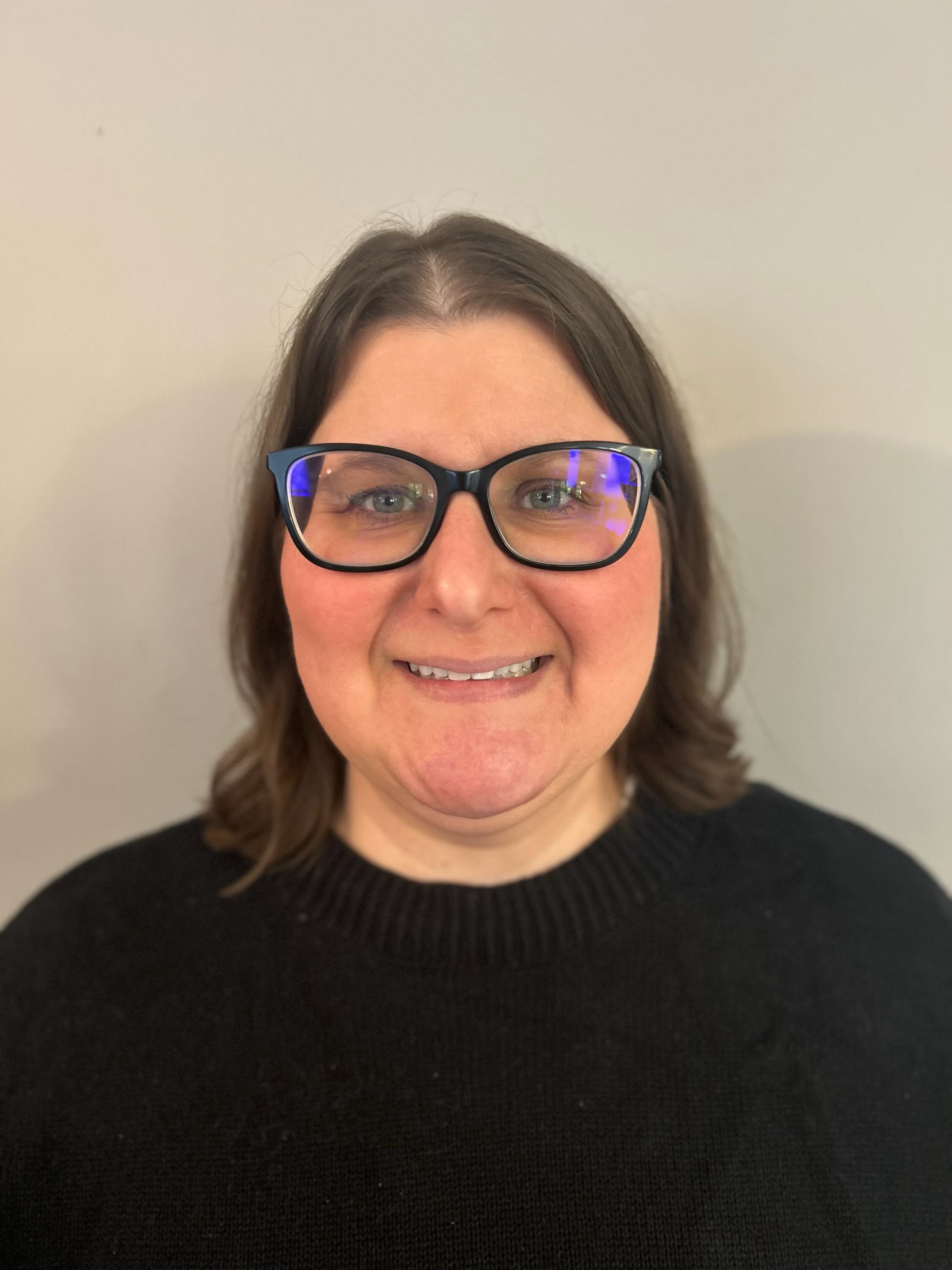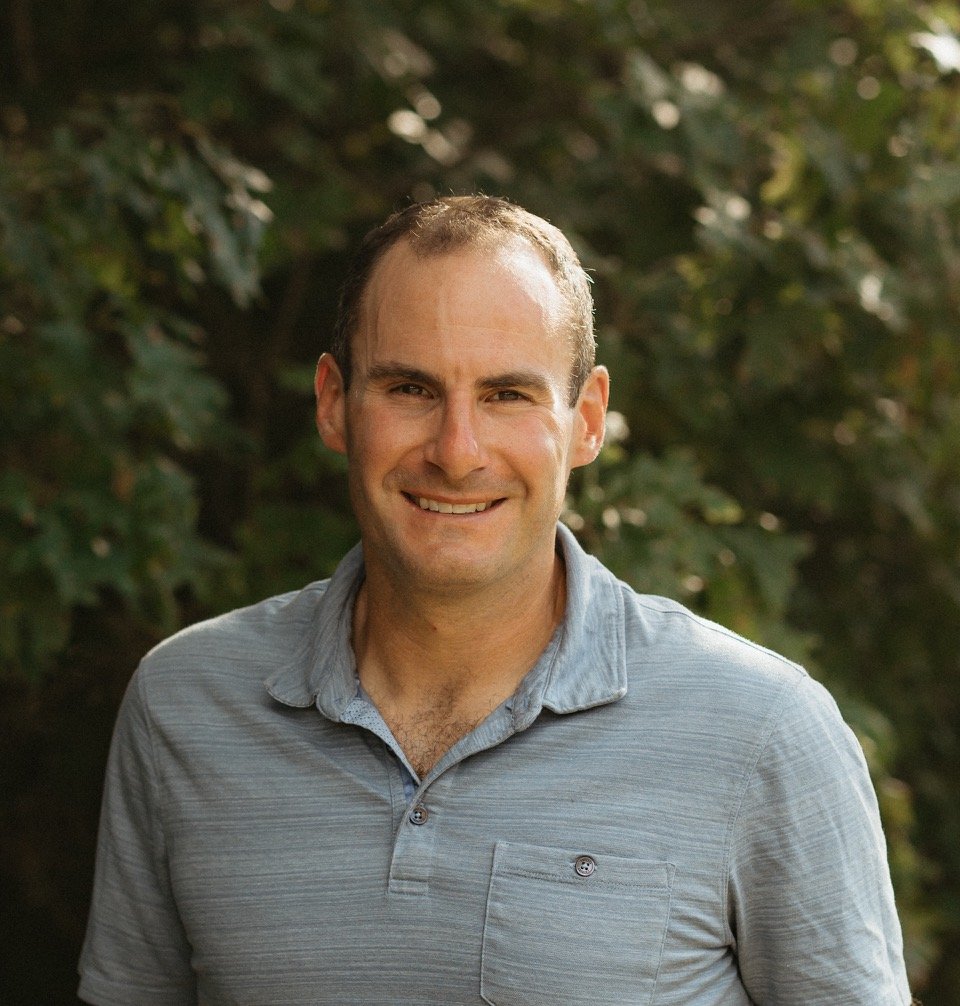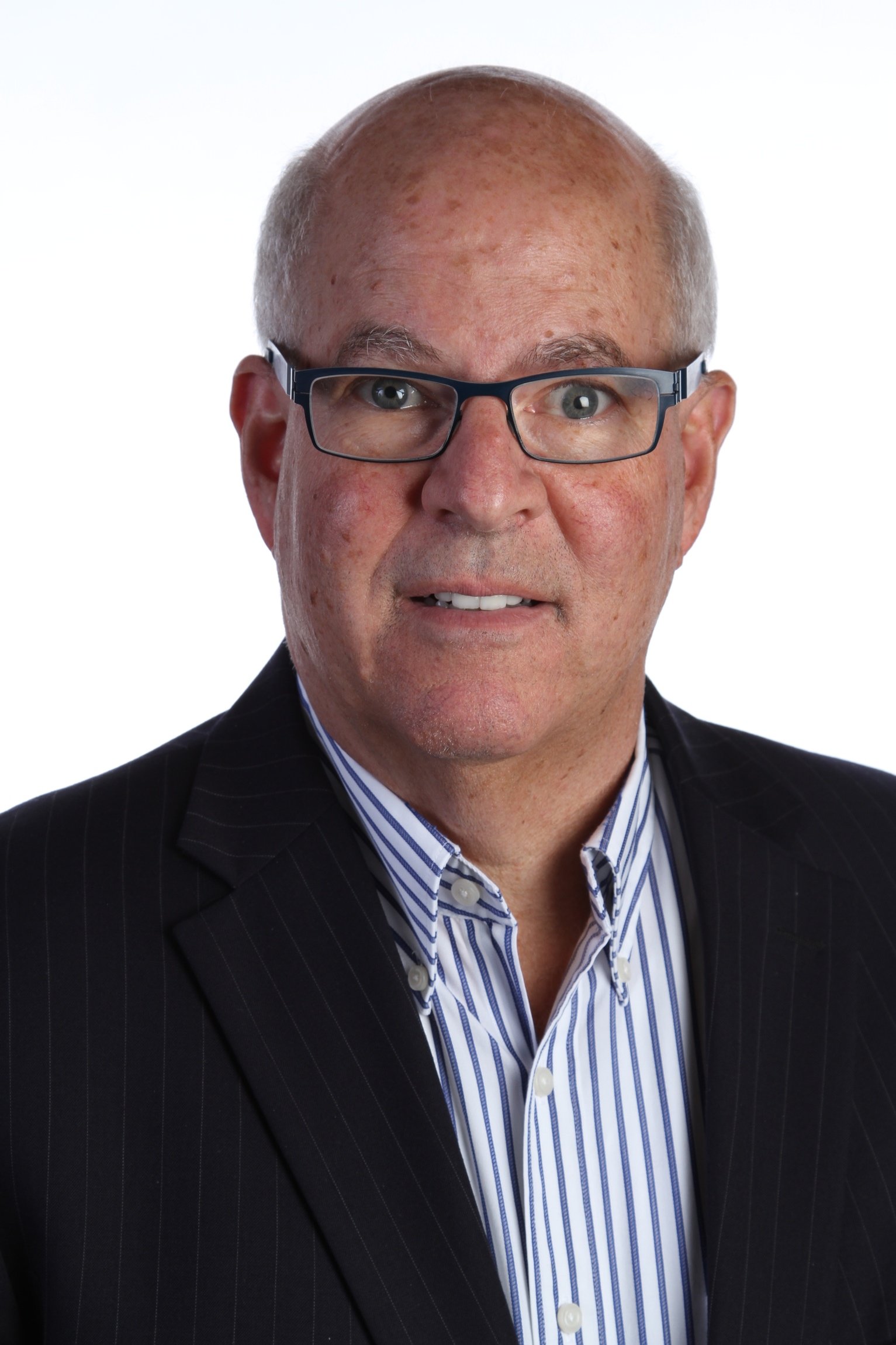Perspectives of the 2023-2024 Leadership Development Program Participants
By Eric Bressler
The companion article by Stacy Levy about Bet Shalom’s Leadership Development Program in this month’s Tapestry describes the initiative in detail. In this article, we hear the perspectives of five of the “graduates” from the 2023-2024 cohort, Stephanie Wexler, Jason Bretz, Joel Feder, Mark Robbins and Greg Helmer.
Why did you participate in the Leadership Development Program?
Stephanie Wexler
Stephanie: Having grown up at Bet Shalom, the synagogue has always been a central part of my life and community. When I was nominated to join the Leadership Development Program (LDP), I saw it as a unique opportunity to gain a deeper understanding of the challenges our congregation faces. I wanted to learn more about how, as leaders, we can address those challenges and make a meaningful impact. This program offered a chance to strengthen my connection to Bet Shalom while equipping me with the tools and knowledge to help guide the synagogue toward a thriving future.
Jason: I was honored to have been nominated to apply for the LDP cohort. I've always taken an active role in organizations with which I am affiliated. For example, I have served on different iterations of the Building Committee. The LDP seemed like an excellent opportunity to learn more about Bet Shalom as a whole and understand where and how I can help.
Joel: I was nominated and asked to apply. It seemed like a low-lift way to get involved with the synagogue in a meaningful way and learn more about its inner workings.
Mark: Bet Shalom has become an essential part of my life. I wanted to gain knowledge about the mission and vision of Bet Shalom and to see how I could better serve the needs of the congregation and build a stronger community.
Greg: I participated in the LDP as a way to get better involved in life and activities at Bet Shalom. I felt I had more to give to the community, and this was the push I needed to take the next step.
What was the experience like for you?
Stephanie: Being involved in the LDP was an incredible experience. It gave me the opportunity to explore key topics that matter to both the congregation and its leaders, such as budgeting and volunteer needs. Each month, we tackled new topics that sparked meaningful discussions with fellow emerging leaders, allowing us to exchange ideas and learn from one another.
Jason Bretz
Jason: The cohort was a great group of people to spend time with every month, with differing backgrounds and in a variety of stages of life. Their unique perspectives brought forth interesting conversations, but Stacy's leadership made the difference! The agenda she planned for the year was well-conceived, and each session built upon the previous one. There were some challenging discussions, but in a good way. The time, contributions and insights of Rabbi Locketz, Adam Cohen, Phil Ecker, Dick McNeil, committee chairpersons and others was appreciated and helped provide a holistic picture of Bet Shalom.
Joel: As someone who’s spent my entire life as part of this community, it was interesting to find that although there were things I knew, I learned a lot! It was enlightening to see how some decisions are made, how leadership views things, and, perhaps most importantly, understand the shortcomings, needs, and opportunities within our community at Bet Shalom. The exercise of cutting programs due to lack of funding was particularly taxing, showing the extreme importance of finding the funds while weighing what’s necessary and what’s not. It was nice to hear different perspectives and see what others felt were issues facing our organization, combined with those the current leadership brought forth.
Mark: I benefited greatly from getting to know the other members of the cohort individually and learn about their breadth of interests and skills that can help Bet Shalom pursue its vision. The great mix of our complimentary backgrounds will help each of us develop our leadership roles within Bet Shalom.
Greg: The experience was awesome. The course forces one to grow personally, assess your life goals and know your leadership traits. The best part was getting to know Bet Shalom’s leaders and meeting the people in our leadership development cohort. The bonus was learning more about the congregation and having guest appearances by Rabbis Cohen and Locketz. We greatly appreciated Adam Cohen and Stacy Levy for their time spent creating and participating in the meaningful curriculum.
What were the most important things you learned?
Stephanie: The monthly meetings were centered around engaging, thought-provoking topics that not only deepened our understanding of leadership but encouraged personal growth. We were consistently challenged to step outside our comfort zones, particularly when discussing difficult topics like making tough decisions about budget cuts as leaders. These conversations pushed us to think critically and make decisions with a broader perspective. Dick McNeil did an outstanding job guiding us through the intricacies of the budget, making it easier to grasp and apply to our leadership roles.
Jason: The most important thing I learned is just how much work there is to be done and how badly we need volunteers to step into leadership roles to make them happen. A small number of people do the lion's share of the work, but I am hopeful that these leadership cohorts will change that!
Joel Feder
Joel: The four pillars our organization is built around, and that we need better engagement at various age levels within the organization. Also, the harsh reality of how times have changed and that things need to evolve to continue to keep pace. Above all else, the need to build community.
Mark: The four pillars of our strategic themes and how the interplay between them lends to building a stronger cohesive community. Going into the program, my major interest was in Tikkun Olam—Repairing the World. That has been a foundation of my Judaism. With the leadership training I was able to recognize how that was interconnected with our other strategic themes such as building a sacred community and life-long learning.
Greg: The single most important thing I learned is not to fear getting involved.
Did you form any new relationships with the other participants or deepen previous relationships?
Stephanie: Absolutely. I formed some truly meaningful connections with several people in my cohort—individuals I had previously seen in passing during Religious School pick-up or drop-off, but never had the chance to truly get to know. The intimate setting of the small group gave us the opportunity to break down those barriers and foster deeper, more genuine relationships. I developed a stronger bond with people like Karen, Joel, Amy, Greg, Mark, Scott, Lauren, and Jason, who I might not have connected with otherwise. Through our shared experiences and open discussions, we were able to form a supportive network that I truly value.
Jason: Yes! It was nice to establish new relationships; I didn't know any of the participants before we started the cohort. It was nice to see some friendly faces at the annual fundraiser and engage in fun conversations. Joel Feder set up a great social club for Bet Shalom that several of the cohort have attended.
Joel: Absolutely. A handful of the group’s participants or their “significant others” are now part of the Card Club small group I formed.
Mark Robbins
Mark: Yes, getting to know others in the cohort, including many younger members, helps me build a broader network and perspective. As one example, Jason Bretz and I are now working with Tony Goodman, Derek Nor and Amber Brumbaugh on the Building Committee to ensure our sanctuary is well maintained for the future. It has opened up social interactions like playing cards with other members from the cohort to build stronger bonds with them.
Greg: Probably the best take-away from the experience is the relationships that were deepened and those newly developed. I now play cards routinely with Joel Feder and enjoy his wife Karen’s banana bread! I met many members who often do not go to synagogue, deepened relationships with Jason Bretz, Stacy Levy, Mark Robbins and Adam Cohen, and forged new relationships with Stan Brown and Scott and Lauren Witebsky.
How has the program informed how you intend to get more involved at Bet Shalom in the future?
Stephanie: The leadership cohort has had a profound impact on how I engage with the congregation. Through this experience, I’ve become more deeply involved with the Youth Engagement Committee and recently being on the Board of Trustees. The program gave me a clearer sense of direction in terms of my involvement, and it strengthened my connections with fellow cohort members. I now feel more connected to the community and more invested in its future. The insights and relationships I've gained through the LDP have motivated me to take a more active role in shaping the direction of Bet Shalom and contributing meaningfully to its growth.
Jason: I am already involved in the current iteration of the Building Committee, led by Tony Johnson. I was introduced to Tony at one of the cohort sessions when we got to meet all of the committee chairpersons. Since then we have been actively working with Amber Brumbaugh on building issues. Mark Robbins, who also served on the cohort, is also a member of the Building Committee.
Joel: I didn’t wait. I formed the Card Club, a thriving small group that meets monthly. The group continues to grow, fosters community building and engagement outside the synagogue’s walls. Further, it brings that engagement within the building.
Mark: I continue to be involved with Bet Shalom on the Finance Committee, Building Committee, Book Club, Card Club, social justice initiative, and volunteering opportunities.
Greg Helmer
Greg: This experience has definitely helped me get involved! I am looking forward to helping with the Social Action Committee, and I’m helping lead the voting campaign for the 2025 World Zionist Conference with Rabbi Thal and enjoying social time with new friends at the Card Club!

